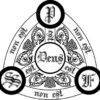Category: Evangelical Calvinist
Writings from the blog: Athanasian Reformed (aka The Evangelical Calvinist). Senior Reformed scholars present a coherent and impassioned articulation of Calvinism for today’s world.
Nala’s Salvation: Against Her “Christian” Legalistic Critics
Legalism continues to be rife on the theological interwebs. An OnlyFans porn star (at the top of the “game”) just gave her life to Christ (she grew up as a Baptist pastor’s kid, like me). I watched her whole interview, where she shared her life story and testimony, on the Michael Knowles show (2:20 minutes). She has gotten lots of pushback and skepticism, particularly on the website formerly known as Twitter. There is a high profile (on said website) Jewess who has been saying vile things about this former star. But she’s a Jewess and not a Christian; so, definitionally…
Boldness Before God in Christ’s Election
More strongly than Calvin, Beza thinks when dealing with the “elect” [“electi”) [sic] of particular persons with particular names. He directs his interest toward what is going on inside them, their questioning and receiving answers, their unsettledness followed by quiet resolution and then more unsettledness in their souls, the entire process of strange ups and downs, back and forths, which constantly goes on there. -Karl Barth, The Theology of the Reformed Confessions, 121-2 This is what happens when election is thought of in “Latin” terms, in abstraction from both its objective and subjective ground in the Godman, Jesus Christ. This…
Christ is Risen! As the Basis for Freedom Before God and Others
The following is a post I wrote quite a few years ago where I reflect on the implications of the resurrection of Jesus Christ. It is both devotional, personal, and a little academic in orientation; but I think it’s fitting for today. Christ is risen! I really struggled with a false sense of guilt and condemnation for particular sins from my past for years upon years. The enemy of my soul kept me living under ‘a yoke of bondage’ that Jesus said I ‘would be free indeed’ from. The Lord did not leave me as an orphan though, by the…
An Intention to Teach
Addendum: When I write a post that I intend to fit the theme of this particular post, I will note that in its title. To be clear, most of my posts will just be me writing and speaking freely still . I am thinking that it’s time to start “teaching” through some of my blog posts. In other words, it is time, at points, to take the time to nuance the precision theological language often used here in my posts. That is my intention, anyway. There will still be many posts where I am thinking out loud (which is my normal…
An Athanasian Reformed Reading of John 6:44-45: On Unconditional Election and the Effectual Call
There was a debate, very recently, between Dr. James White and Dr. Leighton Flowers with reference to John 6:44-45. The theological locus under disputation was on the Calvinist doctrines of unconditional election and the effectual call. White argued the positive position, i.e., affirming unconditional election and the effectual call; whilst Flowers argued the negative, i.e., denying unconditional election and the effectual call. For the purposes of this post, I am just going to assume the reader understands the entailments of said doctrines, and cut right to the chase in offering the Athanasian Reformed (AR) (Evangelical Calvinist) reading of John 6:44-45….
The Christ, as God’s Unconditionally Elect Human for the World
Christ’s atonement is limited to Christ’s vicarious humanity for the world. As the ‘firstborn from the dead’ He is the second and greater Adam, wherein all of humanity, from Christ’s elect humanity, comes to have the capacity, in echo of Christ’s Yes and Amen for us, to say Yes and Amen by the Spirit, to the Father. Christ is God’s unconditionally elect human for the world, and it is in His humanity that we come to have the capacity to truly be human; insofar that the entailments of what it means to be genuinely human is to be in right…
The Christian Humanists versus the Scholastic Theologians: The Bible versus the Philosophers
Charles Partee in his book Calvin and Classical Philosophy, by way of introduction, offers a nice treatment on the entailments of a mediaeval Christian Humanism versus a theological Scholasticism, as both of those were present in the early formation of the Protestant Reformation; with, of course, particular reference to John Calvin. I am going to share a long passage from Partee because it is rather pertinent to the way I see myself operating; as far as both mood and method goes. I will provide the passage, and then offer up some closing thoughts (the usual). In the sixteenth century, however,…
Countering the Abstract Faith of Augustine and Pelagius with the Concrete Faith of Christ
An abstract notion of saving faith, based on an abstract, or even undefined doctrine of election, always must attempt to make itself concrete. It must seek a way to fill in the gap created by a notion of faith wherein the believer believes out of an idea of faith that is seemingly inherent to them, or individually gifted to THEM. The antidote to this abstract notion of faith is to come to understand that people believe or trust out of Christ’s vicarious faith for us. It is by His poverty for us that we have become rich; that we can…
The Theological and Ideational History Behind the Deconstructed Culture Writ Large
In those days there was no king in Israel; everyone did what was right in his own eyes. –Judges 21:25 The human heart has never changed. Ironically, in our secular times humanity, in the main, has come to believe that we have “progressed” beyond our primitive forebears. Secular humanity of the 21st century generally maintains that it has moved beyond the religious platitudes and superstitions of the pre-critical past, and moved onto greener and more enlightened pastures. But the secular age, in fact, is really just a mythology that needs to be demythologized by the lights of sound and theological…
An Even Quicker Word on the Trinity: Generation
The Father, Son, and Holy Spirit are in-generate in their inner and eternal being. Some want to think in terms of an origin of relation, and thus call the Father in-generate and the Son and Holy Spirit, following, generate. Here we get the notion of “eternal generation,” with the Father as the aitea or source of the Godhead. I affirm eternal generation, but only in a liminal way. That Father isn’t anymore the Father than the Son is the Son in relationship to the Father and vice-versa. This is a necessary and eternal relationship that resists, ultimately, the idea of…









